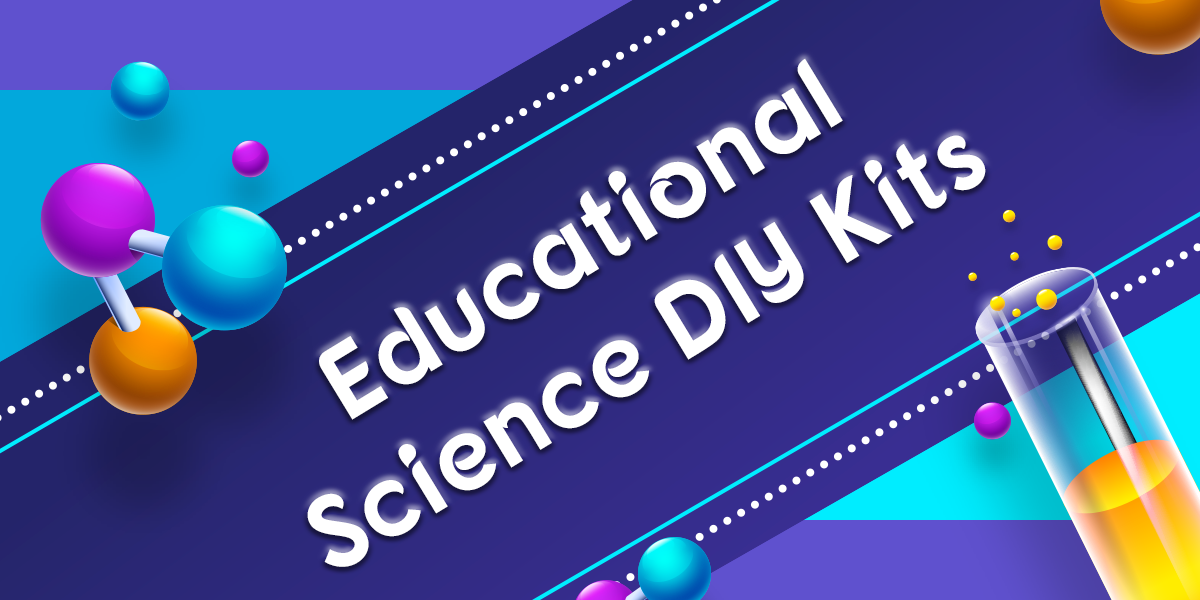As parents, we always intend the best for our children and also be the best in what they do. So we try to teach them to the best of our knowledge and engage them in theoretical studies. But can it be better? Of course, it can! Experiential learning is a lot more effective than just learning directly from the books. This notion of learning is said to be the most innovative and revolutionary in the field of education.
To learn from a textbook may be traditional but getting a first-hand experience of the concept, the child learns better and faster. There are many DIY kits available that will engage the children in experiential learning. As the saying goes, "Knowing tomato is a fruit is knowledge but not putting them in a fruit salad is wisdom", therefore, experiential learning helps in transforming the bookish knowledge to wisdom.

Educational Science DIY kits:
Science DIY kits are educational kits designed especially to serve the purpose of teaching the kids about various essential and fundamental concepts of science in an interactive way. This is proven to be useful for children of 8 years and above. A DIY kit consists of all educational tools, instruction manuals, and equipment that are needed for the experiments and learning. These DIY kits spread out to different sections of science such as zoology, biology, astrology, physics, chemistry, etc.
These Science DIY kits are affordable and make a perfect gift for your kids who will get familiar with experiential learning by conducting various experiments through the DIY kit.
Benefits of Science DIY kits:
-
With the DIY kits, the children will get familiar with some of the fundamental concepts of science at a tender age. As they get mature, they will be able to understand more profound and complex concepts in science easily. These kits allow the children to think and under the practical applications of the concepts.
-
With every experiment, self-confidence and morale are boosted. This way, your children won"t shy away from experimenting further and will develop a thirst to know more. Kindling curiosity automatically ignites interest towards the subject and its branches.
-
The activities prescribed in the science DIY kits are known to hone soft skills such as critical thinking, problem-solving, reasoning, observation power, memory, etc. These skills are essential in the long run and therefore, should be encouraged.
-
DIY incorporates learning through fun. Theoretical lessons are usually bland, as a result, the kids won"t take much interest in learning. However, when a concept is taught through a game or some form of creativity, they gradually develop interest.
-
Many scientific concepts and theories cannot be understood merely through textbooks or examples. Sometimes, a certain practical explanation is also needed for the children to understand. One of the finest examples can be the theory of dispersion of light or refraction which the kids can experiment and see the theory coming to life.
-
DIY and experiential learning encourages out-of-the-box thinking among kids. Innovation and inventions are only possible when the kids go beyond the theory and see the practical implications of it.
Kids have a natural curiosity to know more. However, it is up to us how we kindle that interest. DIY kits are proven to be effective in kindling curiosity and interest among the kids. This will help the children in exploring more concepts and engage themselves in understanding far more complex theories and concepts in the future.
